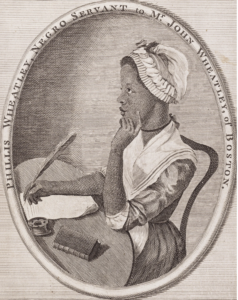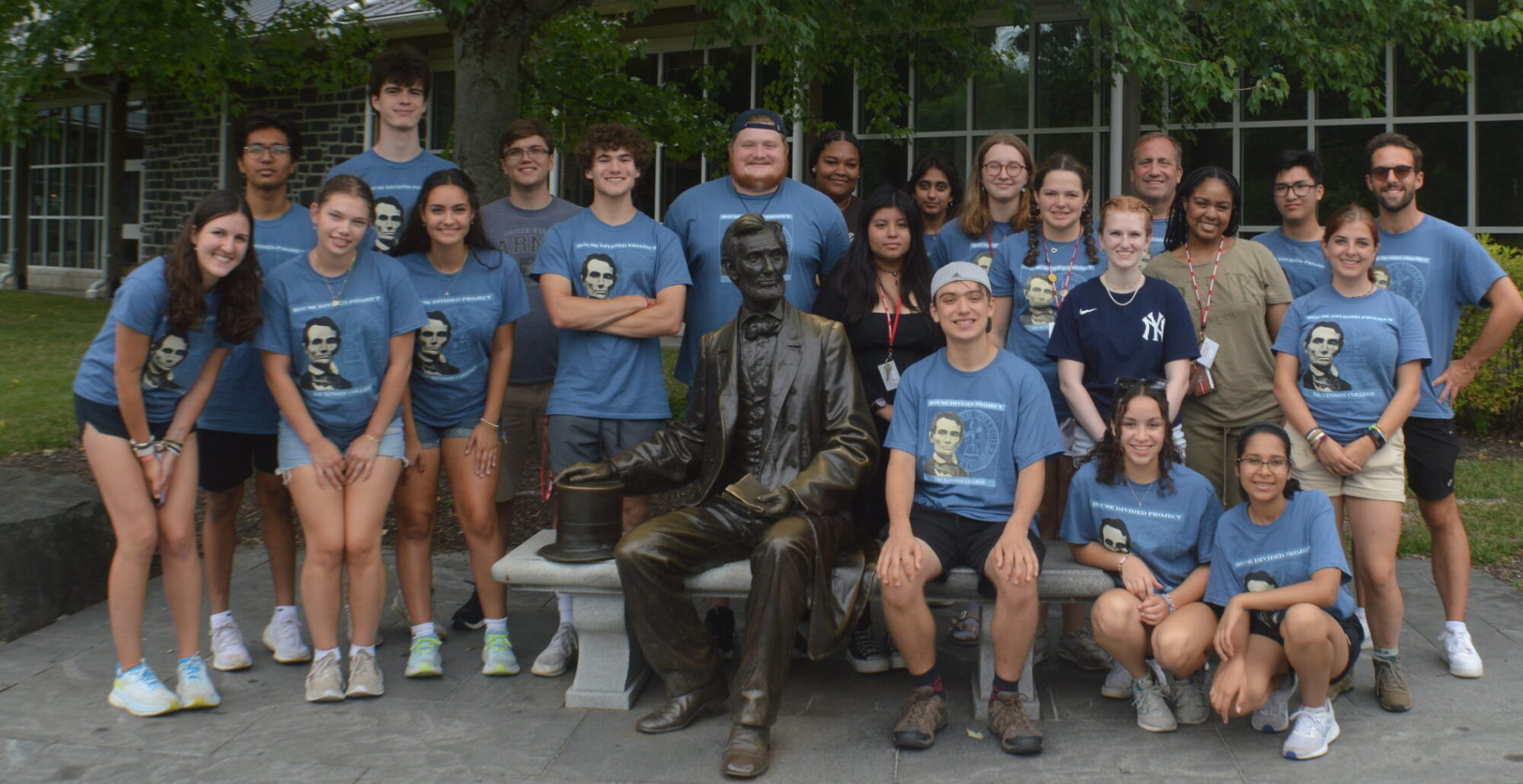On Being Brought From Africa to America (1773)
By Parker Hayes (Summer 2022)

“Remember, Christians, Negros, black as Cain, May be refin’d and join th’ angelic train” is the closing couplet of Phillis Wheatley’s 1773 poem “On Being Brought From Africa to America” [1]. Within this poem, Wheatley described her abduction and transport to America as a slave and, more specifically, the religious aspect of this journey. Wheatley assumed a passive tone that invited white Americans to relish in how they had saved her pagan soul from the fiery depths of damnation by imposing Christianity on her. But beneath her subdued introduction is a biting stab at the hypocrisy of white Christian beliefs, and the nature of slavery.
Wheatley was brought to America as a slave when she was only seven years old and unlike a majority of her fellow slaves, she learned how to read and write, whereupon she discovered a talent and passion for poetry. “On Being Brought From Africa to America” was published in London as one of twenty-eight poems in the collection Poems on Various Subjects, Religious and Moral (1773). Her poetic abilities allowed Wheatley to rise from the depths of her servitude and gain trans-Atlantic recognition, and eventually in 1774 she was freed from her enslavement by the Wheatley family [2]. In the years preceding the War for Independence, Wheatley embraced the Lockean ideals of natural rights that the Founding Fathers would support and began fighting for abolition of slavery alongside leading abolitionist voices on both sides of the Atlantic, including Reverend Samuel Hopkins and Granville Sharp [3].
Wheatley’s poem assumed a subordinate tone towards her captors. She stated that “Twas mercy brought me from my Pagan land”, a sentiment hardly echoed by other enslaved Africans at a time when the Trans-Atlantic Slave Trade was still in full force and well known for its cruelty. In the lines that followed, she explained how her experience in America had brought her the salvation of Christianity and the belief in God, however, she also hinted about the involuntary nature of this redemption – a “redemption neither sought nor knew” [4]. Wheatley seemed to tread carefully with her words and her tone in this poem, as she likely knew the prejudice held against black writers in America [5]. However, in the final lines she flipped her attitude to poke a poetic pointer into the chests of those evangelical enslavers to remind them that she and others of her status are Christians and are people too. She used the faith forced onto her to argue against the cruel institution of slavery, by reminding white Americans of the moral and ethical codes that they were supposed to uphold, but at which they always seemed to fail. In doing so, Wheatley used her unique position among slaves in America, that of an educated poet who is allowed to share her voice and experience, to point out the backwards nature of her captors and to rail against slavery itself, while disguising it behind a subversive tone of acceptance of her new lifestyle.
[1] Phillis Wheatley, “On Being Brought from Africa to America”, September 1, 1773, Reproduced by House Divided.
[2] Nicolas Mosvick, “Forgotten Founders: Phillis Wheatley, African-American Poet of the Revolution”, February 17, 2022, https://constitutioncenter.org/blog/forgotten-founders-phillis-wheatley-african-american-poet-of-the-revolution.
[3] Mosvick, “Forgotten Founders”.
[4] Phillis Wheatley, “On Being Brought from Africa to America”
[5] Mosvick, “Forgotten Founders”.
